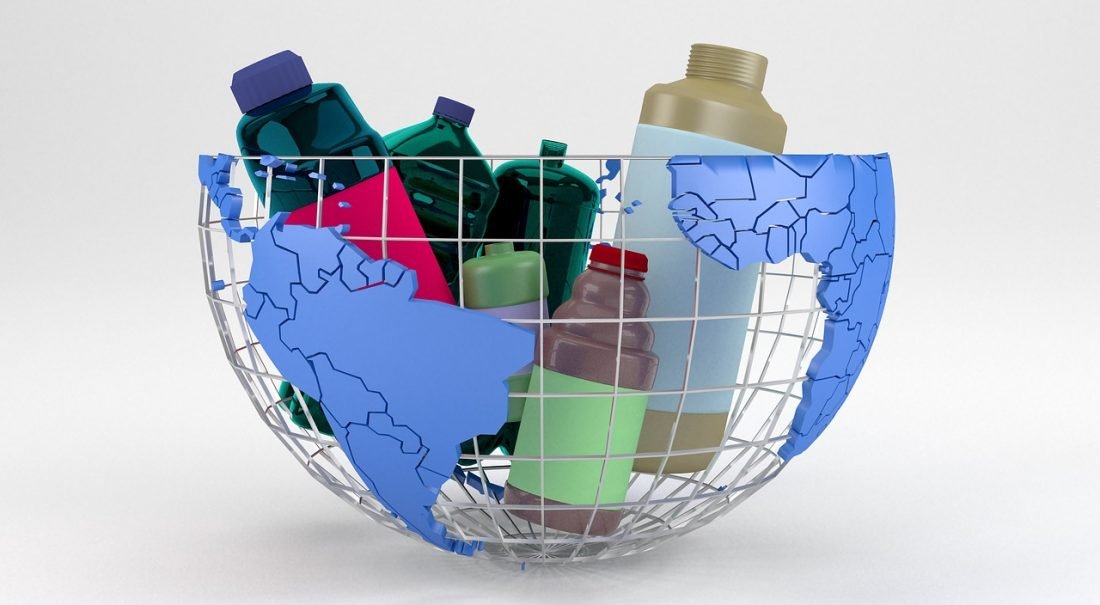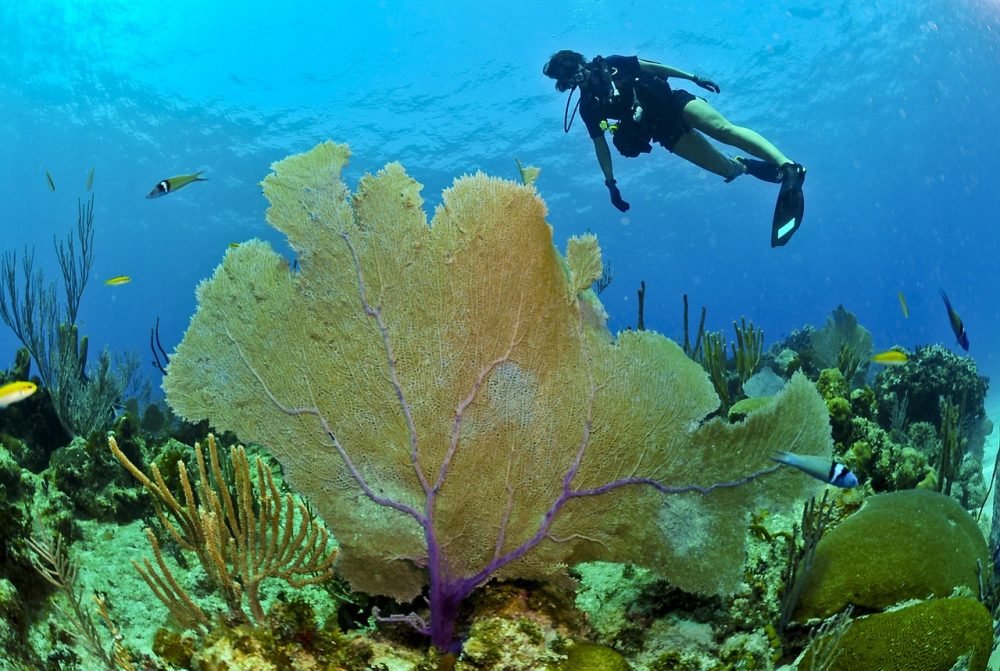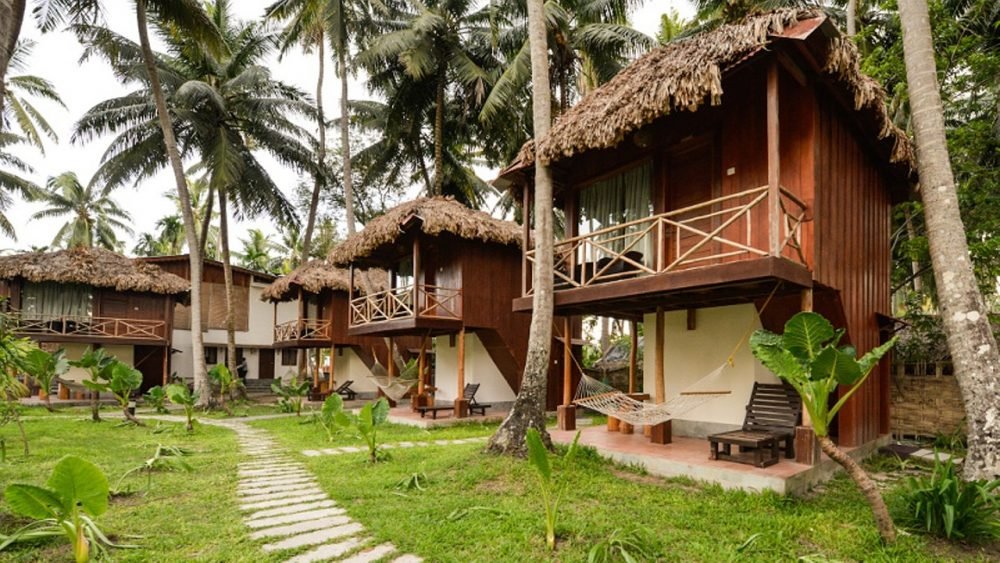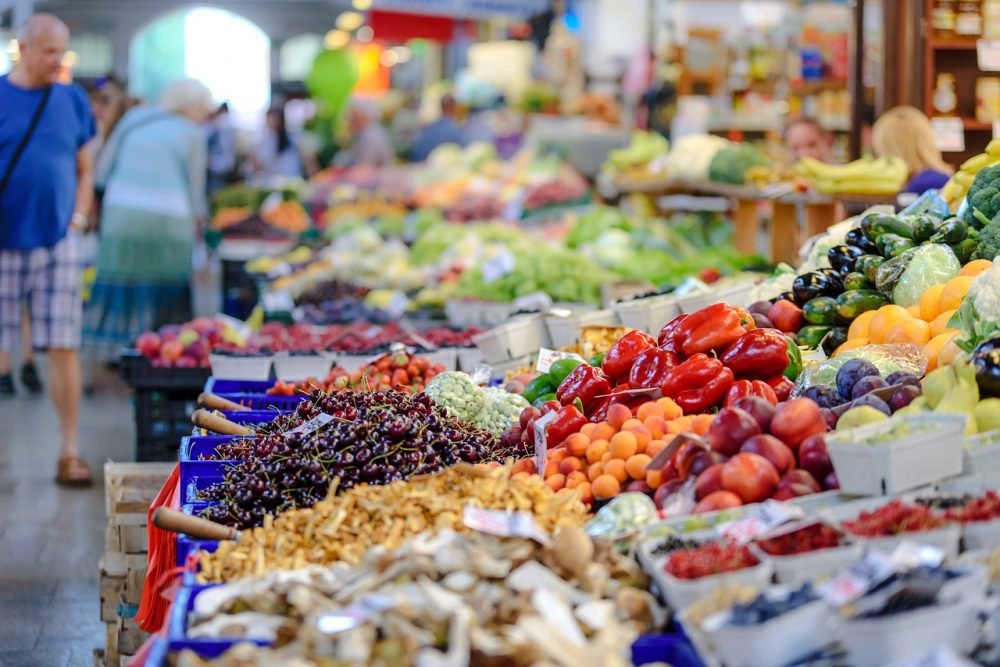What is sustainable travel and why is it important? Why should an average traveler be concerned about it?
For most of us, travel is just a break from our mundane lives. During this relatively short period, we just want to be away from everything. We definitely do not want to make our lives more complicated.
The truth is that we cannot run away from the global environmental challenges we are all facing today. Wherever we go we see the consequences of environmental calamities, excessive resource consumption, pollution, climate change, poverty, and biodiversity loss. They are affecting all of us every single day even though we are not always aware.
Sustainable travel is just one but very important way how we can help deal with these challenges.
Contents
Why does a good story matter?
Explaining something in a boring way often puts us into the mode of resistance. This is almost inevitable regardless of how important the topic is. Be it healthy food, environmental problems, plastic waste, climate change, or even bloody war somewhere. We just do not care much unless:
a. It has a direct impact on us,
b. Someone tells us a story in a way that makes us feel as if we have experienced it by ourselves (even if we have not).
Many important global messages and stories remain unnoticed because we simply cannot personally relate to them. This very much applies to almost anything, including sustainable travel.
Forbes reveals the results of interesting research on why our friends actually do not care about our travel stories as much as we want them to. They simply do not share these experiences.
Therefore, my first and utmost task here is not to give you some boring definitions of sustainable tourism. I would like to make it simple.
What Is Sustainable Travel?
Sustainable tourism is traveling green. It is overall that simple.
Yet, to make some more sense I will, first, introduce you to some background facts (that you can just skip). Secondly, you will get very practical and personal sustainable travel tips. These will help both the experienced travelers and newbies to see why you should care and why you should choose sustainable travel.
If you want to skip the background information you can simply jump TO THE TIPS NOW.
Sustainable Travel: A Trend or Necessity
Different faces of travel
Travel has mostly had two faces so far.
It has been and still is all about entertainment – a breakout of our mundane lives. Another face it has is usually less entertaining and more practical – the one related to our business travel.
It is just very recently that travel has also become a kind of new “freedom tool” for those who can afford it and for all sorts of digital nomads. This is also where travel starts to get greener.
Why should we care?
Sustainable travel should be a part of our lives if we truly care.
Traveling is a huge global industry. It affects us all. This is why, we should care about sustainable travel just as much as we care about people, the environment, and the effective use of resources around us.
That said we should care about sustainable travel if we care about our future.
Some not-that-boring statistics
The total number of travelers in the world is increasing every year. The United Nations World Tourism Organization (UNWTO) has estimated that internationally there were just 25 million tourist arrivals in 1950. By 2018 this number has increased to 1.4 billion international arrivals per year! This is around 18% of the World’s total population and the numbers are going up.
It is inevitable that this increase leads to a significant environmental impact.
Why sustainable travel?
Sustainable travel is a relatively new concept.
A recent Booking.com survey confirms that over half (55%) of global travelers are more determined to make sustainable travel choices. Yet, the barriers include a lack of knowledge and available or appealing options when trying to put this into practice.
It is obvious that today, sustainable travel gets more and more attention. Yet such changes don’t happen overnight.
Most of us are aware of the environmental and climate change challenges that we are all facing globally (if we trust science, of course).
Anyone, who has heard about famous Swedish teen Greta Thunberg, knows how sensitive and important these topics are. Nevertheless, the Booking.com survey gives an insight into how many (or how few) of us link these challenges to our travel habits. At least for now.
Major conclusions about sustainable tourism
Based on the Booking.com research we can draw some major conclusions about sustainable tourism:
- People are still not aware enough of sustainable travel and why it matters. I will rephrase this. People do not lack awareness. The professionals (those who know) obviously fail to raise this awareness effectively;
- Sustainable tourism companies and destinations do not know yet how to make sustainable travel products and services more appealing than traditional ones;
- Traditional travel companies are not motivated enough to offer more sustainable travel products;
- Not all travelers can afford and/or want to pay extra for sustainable travel products;
- Sustainable tourism companies fail to adjust to the ever-changing agenda of the people living a modern lifestyle.
The overall conclusion is also that sustainable travel is not a priority yet when it comes to personal travel planning and running travel businesses.
What can we do?
Each of us can do a lot to help in solving global environmental problems. Choosing and promoting sustainable travel is one way to do it. How? We can change the way we think when planning our trip.
Here is a simple practical guide to sustainable tourism with sustainable travel tips. These are for everyone who cares or who may start caring more from now.
#1: Sustainable Travel Planning
Every trip starts with its planning. Even if we plan a little, we still do. We can plan our trip by ourselves or ask a professional to do it for us.
Planning our own trip
If we plan our own trip, we have all the control over where we go and what we do. Yet, we also have the burden to plan our precious time effectively.
The number of travel trips and the amount of information we get today is overwhelming. We have many “to do” things on our busy schedules before we can actually go on a trip. Thus, it is very likely there is not much time left to explore sustainable travel products.
Still, it is more about our routines and less about time. We can actually do more sustainable travel choices without much of extra effort. Just follow all the other tips below.
Trusting professionals
There is a myriad of conveniences of giving away your travel planning to a professional travel planner or to a travel agency.
That said you do not have to waste your time digging in countless information sources on the web. There is somebody else who can do it for you much more effectively.
You can ask your personal trip planner to look for sustainable travel companies and sustainable travel products for you.
Do not hesitate to ask for proof! After all, you are the one who is paying for your trip plan or even for an expensive package tour (whatever you choose).
This way you will force travel agencies to rank sustainable travel companies higher on their lists. This will in turn force tour operators to work on more sustainable travel choices.
You as the traveler have a big power of decision and influence here.
#2: Look for Under-The-Radar Places
I am a big fan of going off-the-beaten-path. First, less discovered places are naturally a lot less crowded. This also means they are likely much more authentic. Secondly, by going to under-the-radar places you are helping to re-distribute tourist masses more equality. This means you are helping to reduce the big overtourism problem.
You may wish to read more about why you should go for authentic escape travel and look beyond Google page 1 here.
This doesn’t mean you have to necessarily skip all the “must-see places” and “must-do things”. Yet, it is very good to diversify and to step a bit out of your comfort zone.
#3: Using Less Resources Means More Sustainable Travel
This one is big. It goes without saying that we should use fewer resources to be more sustainable. Obviously, this also applies to sustainable travel.
Less shopping is good
Retrain from buying unnecessary things. I cannot emphasize this frequently enough.
Before you buy something ask yourself several times if you really need it. Also, ask if you really want to pack it in your travel bag.
Choose experiences over goods as much as possible.
If you really must buy something, choose consumable things like local food or drinks.
Crafts made by locals may be both a good and a very bad choice. Yes, in a way you are supporting the local economy. Yet, “natural” products are sometimes made out of rare and endangered animals and plants. If you buy such products, you are supporting the extinction of species (see more about this under #6 below). This is not sustainable travel at all.
By choosing carefully what you buy you can kill two birds with one shot (without actually killing any bird). You will support the local economy but also encourage locals not to produce anything that is not necessary.
Bring home experiences, not stuff
The most useless stuff you can probably buy is a bunch of souvenirs. Especially those not made locally. This is just another garbage to bring home and throw out later.
Buying local foods, drinks, and natural cosmetics is a much better option. First, they are a part of your own travel experiences. Secondly, they can be a nice surprise to your friends and family.
A real oil-based Egyptian perfume or Muscat oil and a bottle of good quality wine from Georgia will be an excellent surprise for your friends and family. Combined with your stories these goodies bring some taste and odor of your recent adventure with you.

Refuse plastic (and anything non-disposable)
It is not that difficult to refuse plastic bags in your everyday life. Why should it be different on your trips?
Many developing countries do not have proper waste disposal systems. This means that most of your plastic waste ends up in the ocean or somewhere else in nature.
Remember, the plastic bags we use take 10 – 20 years to decompose. It is 50 years for foamed plastic cups and 200 years for aluminum cans. Plastic bottles take up to 450 years to decompose!
The Telegraph gives a deeper insight into the mind-blowing scale of plastic garbage we are producing.
Bring your own reusable bags with you. Take a light metal water bottle instead of buying a plastic one. I know, it is not always that easy for the bottles, because in some places you can get clean drinkable water only in plastic bottles. Try to do refills as much as possible though!
You may also take portable water cleaning systems with you where ti is really necessary. These will cost some more extra money and effort though.
Bring home some of your trash
While it sounds awkward, it is a good idea to take some empty packaging back home. You can see this invitation while staying in many hotels in developing countries.
Are you are coming from a country with a well-established plastic recycling system? Well then, you will do a big favor by bringing home some recyclable waste. Dumping plastic and similar trash in a country without such a system usually means it ends up in the environment.
Use less water
It is also not that difficult to stop wasting cold and hot freshwater while going to the shower. It goes without saying that you should avoid a bath as it takes much more water.
Freshwater deficiency is a big problem in many countries. The lack of effective water treatment makes this problem even worse.
You can help by saving some water while traveling.
#4: Choose Direct Flights When Possible & Fly Economy Class
The aviation sector is one of the fastest-growing polluters says The Guardian.
Carbon footprint calculator Atmosfair says that an average flight from London to Tokyo and back generates about 5 tons CO2. Let’s scale this number to the emissions for one car per year. It is around 2 tons for a middle-class model with a mileage of 12,000 km (7,500 miles) per year.
Frankly speaking, you should avoid flights as much as possible. Unfortunately flying is usually the only feasible option for international travel for most of us. Hence what else can we do to reduce our carbon footprint? There are a couple of simple things.
Choose as few flight connections as possible. Take direct flights. These are sometimes more expensive, but also more convenient options.

#5: Choose Sustainable Travel by Public Transport
Travel by bus or train where possible. It does not always mean you have to squeeze yourself into a narrow seat for long rides. You can choose from different travel classes.
Sure, the more expensive and comfortable class will leave a more carbon footprint. Yet, it is still a much more sustainable travel option than traveling by private car.
In many cases, car rental is still the only reasonable or only possible option. Choose a car with less consumption then. A hybrid is usually a great choice. Also, explore the availability of electric cars and their charging networks.
Ships, ferries, and diesel-run boats also consume a lot of fuel. Hence it is wise to avoid them as much as it is possible.
Finally, remember that going on foot and/or by bike is still the greenest way of getting around.
#6: Don’t Buy Wild Animals and Plants or Their Products
It is been a while since travelers are urged to avoid buying any products made of wild animals and plants.
Illegal trade with endangered animals and plants is still a big problem out there. Its value is between $7 billion and $23 billion each year. This is the fourth most lucrative global crime after drugs, humans, and arms.
Supporting such a trade just to bring home some souvenirs is something totally against the sustainable travel concept.
CITES is the international keyword that you should be aware of. It is an abbreviation of the Convention on International Trade in Endangered Species of Wild Fauna and Flora. The convention sets up the legal framework for international trade with wildlife so that it does not threaten the survival of wild animal and plant species.
It is usually against sustainable travel principles to buy something that is made of wild animals and plants at a local market. It is even worse if you consider buying wild animals and plants that are alive. If you do so you must check out certificates of the origin of what you are actually buying.
It may be a crime
Violating international law and getting into problems in customs is probably not on your travel plan. The items without valid certificates will be confiscated at the best. You also have all the chances to get into prison.
Illegal trade with wild animals and plants or their products is a crime. Saying that you did not know will not help. Remember, if you have doubts, don’t buy!
That said exotic souvenirs like corrals, shells, crocodile teeth or crocodile leather products without certificates, goods made out of turtle shells, and non-eatable plants, not to say ivory or rhino horn products, etc. are all a no-go. This applies to all wild animal and plant products.
If you really must take home something from your trip, take a photo or video memory. It is usually free. Also, refer to #3 above on what to bring home instead.
#7: Travel Locally
You can also reduce your international travel CO2 footprint simply by exploring more local destinations.
With all the “eye-opening” exotic destinations we often forget about the beauty that is just “behind the corner”.
You will hardly surprise many people today with your annual visit to some exotic distant country. Yet you might discover an awesome “unknown” place not that far from where you live. Just look around. There are many gems very close by.
#8: Sustainable Travel During Off-Season – Shoulder Season
I almost never travel abroad during the peak season in summer. We have truly secluded and beautiful places here in Latvia. Why should I spend my hard-earned money to be swallowed by crowds of other tourists somewhere else?
Explore your own country/region during the peak season. Travel internationally during the off-season or so-called shoulder season (the time when the peak season ends or has just started). This way you will reduce your impact on more visited destinations.
Travel off-season and you will also get much more privacy during your trip.
#9: Slow Travel is Sustainable Travel
There is nothing less authentic and less sustainable than chasing several new travel destinations with many international flights in a row.
Don’t get me wrong. There is also nothing wrong with visiting many countries. Yet you will enjoy traveling much more by doing it at a slower pace.
I know people who would not visit the same country again just because they have already “checked in” there once. They are stealing from themselves.
Ultimately it is not about how many countries you have visited. It is how much you have truly immersed yourself in your sustainable travel experience.
I am going to Thailand for the 4th time in my life. Why not? I might even come back for more. There are still so many less touristic places to explore in this beautiful country.
You can re-discover many places by going there at a slower pace and off-season. These may be truly eye-opening sustainable travel experiences for you.
Slow travel also means less inland transportation and less carbon footprint. That said slow travel is sustainable travel.
#10: Always Leave Reviews – It’s More Important Than You Think!
Leaving reviews not only helps other guests and travel service providers. It is the best way to say what you liked and what you did not during your trip. This is also a perfect way to steer travel service providers towards sustainable tourism and improve their services constantly.
Do you see a clear problem with plastic waste and wastewater treatment in a property that is otherwise advertised as a paradise on Earth? Do not hesitate to mention that in the review.
Does a travel service provider offer you plastic bags where you think they could do without them? Mention this in your review. If somebody just dumps the trash in nature, “bury them” on a TripAdvisor.
If on the contrary a place recycles all the waste and does the utmost to follow the “zero waste” principle do not forget to prise it in your review. This will motivate others to follow.
Sustainable travel depends on how much we truly care. We frequently tolerate things that must not be tolerated. Sometimes we also forget to praise those who deserve it. Our honesty will have a much more positive effect in the long run.
#11: Transparency – Watch Out for What You Are Paying For
Paying less does not always mean that you are saving more. That said you always get what you pay for.
Sometimes it seems that traditional travel services are cheaper than sustainable tourism products. Frequently it is not actually the case.
Sustainable travel services (especially when they are certified) are pushed to be more transparent.
Many travel companies are hiding the actual final expenses until you book with them. Hence you may pay the same or even higher price for a non-sustainable service instead of buying just seemingly more expensive sustainable travel products.
The travel industry is highly competitive. Hence there is a lot to choose from. Use this in your favor and choose more sustainable travel companies.
Having doubts? Ask the company or your travel agent to explain their sustainable practices in more detail. Choose another service if they fail to do so or if they do not comply with what you think is sustainable.
#12: Only Responsible Ecotourism is Sustainable Tourism
Eco-tourism goes hand in hand with sustainable travel. The latest term is wider though. Ecotourism is just one form of sustainable travel.
Check out why ecotourism is a growing trend here.
Ecotourism is all about exploring the wildlife. Hence responsible travel principles are especially important.
Choose tours and guides that do not disturb wildlife. A good sign of responsible ecotourism is not getting in direct contact and interaction with wild animals. If somebody offers you the opposite, go elsewhere.
Eco-tourism is in its substance observing wildlife in its natural environment.
Don’t support any attractions with wild animals involved!
There might be some exceptions when you get close enough to the animals in sanctuaries. Yet, you must not be allowed to pet them.
Never go to places offering close-up pictures with “calm” predators like tigers, lions, and bears. They drug these animals and usually keep them in terrible conditions.
You might have heard that you must refrain from riding elephants. You really must. The prominent animal protection page Dodo reveals the harsh truth on this issue. Elephants “employed” in the tourism industry receive great physical and mental trauma. Isolation, starving, hitting, and beating is a common practices to break their spirits and get them to behave and do a show for you.
The cruelty does not stop only with big animals. Monkeys, birds, and reptiles suffer equally badly. Don’t pay a cent for taking pictures with wild animals kept in captivity.
The overall advice is very simple: if you love wild animals, view them in their natural habitats.
#13: Sustainable Adventure Travel
Adventure travel can be both sustainable and very harmful to the environment.
Adventure travel frequently involves activities in nature. Sometimes it goes hand in hand with responsible eco-tourism.
Choose soft adventure travel
Soft adventure activities like hiking, biking, and kayaking/canoeing are indeed great travel experiences.
Yet, these activities must be very well organized. Otherwise, they end up with too many travelers in the most popular destinations and tons of trash left behind by the adventure seekers.
Dive (and snorkel) consciously
The famous French naval officer, explorer, and conservationist Jacques Yves Cousteau’s first tried his scuba diving prototype in 1943. Since then it has gone viral. Scuba diving opens a whole new underwater world for the masses, but there is a price for that.
Diving is a great way to learn a lot about marine wildlife and conservation. Unfortunately, many popular diving destinations have become too popular and crowded.
In theory, all divers are taught not to touch or take anything while underwater. The reality is very often far from that, especially in most popular places. I have seen many coral reefs suffering greatly from the abundance of diving visits, especially from inexperienced divers who damage corals accidentally or intentionally.
Choose carefully before you go on your next diving trip. It may leave a considerable CO2 footprint and also have a direct impact on fragile underwater ecosystems. Consider if you really need to go on your diving trip to a popular dive site at all.
Snorkeling usually means staying on the water’s surface. You must be still careful, not to touch and hit coral reefs.
Avoid exclusive travel adventures
It is probably obvious that exclusive adventure travel is usually not sustainable travel. This involves private transportation by helicopters, private jets, yachts, ships, etc. This kind of adventure travel has a huge CO2 footprint per person.
#14: Don’t Use Toxic Sunscreens
Are you planning a diving or snorkeling trip, or simply relaxing on a beach? Well then, you must avoid sunscreens that are toxic to marine life.
Make sure you use a “reef-friendly” sunscreen whenever you go into tropical waters with the sunscreen on. Check out if the sunscreen you buy does not contain the coral-harming chemicals oxybenzone and octinoxate.
Oxybenzone is a synthetic molecule that is toxic to corals, algae, sea urchins, fish, and mammals.
The Safe Sunscreen Council gives more answers about the environmental impact of sunscreens.
Remember that no sunscreen has been proven to be completely “reef-friendly”. Hence any other sun protection (mostly clothing) should be considered before you use sunscreen.
#15: Stay in Locally Owned Places
Choosing sustainable accommodation goes hand in hand with planning a sustainable travel trip (see #1 above). Yet there are some sustainable travel tips here that are worth highlighting.
Stay in locally owned accommodation as much as possible.
While there is no guarantee that a local guesthouse will be 100% sustainable, the chances are that it will be much more than any of the so-called chain hotels or all-inclusive resorts.
Local accommodations are usually small. They cannot afford to waste resources. Thus, instead of providing let’s say buffet breakfast, they will offer you much more reasonable a la carte choices from the menu. Also, they won’t probably change, and wash towels every single day, but do you really need it?
Most money you will pay for a local guesthouse, a small family-run boutique hotel, or a hostel will go to the local owner. Hence you will really help the local economy, which is an important part of a sustainable travel approach.
All-inclusive and large resorts are known to be resource consumers. These are very often international hotel chains. Local communities benefit a little from these businesses.
#16: Eat Local Food
I see no point in traveling huge distances and eating the same stuff you eat at home.
Traveling is all about new experiences. Try out local traditional cuisine and eat in places run by locals.
Going let’s say to Italy or China and looking for some chain food restaurants like Macdonald’s or Burger King is not sustainable travel.
Try going to and having meals where locals do. This way you will support the local economy and will enjoy an authentic local atmosphere.
We all know that mass tourism places are mostly fine-tuned and very much overpriced.
If you have a chance, visit locals and try real homemade food. It is human hospitality that makes me want to come back, for example, to Georgia (Sakartvelo). I have stayed in simple but truly great homestays serving amazing food there.
Do not avoid local street food
While it is always good to be careful, the local street food is sometimes safer than the one you can find somewhere in an average restaurant. Being on the street you see how the food is made while usually, you have no idea what happens in the restaurant’s kitchen.
Don’t eat anything that looks unsanitary though to avoid stomach problems. Common sense helps here a lot here.
Is locally grown good better?
You will find a lot of advice today to choose locally grown food. It is overall a great concept. Locally grown food may be better but not necessarily.
First, in the globalized world we live in today it is sometimes difficult to find food that is truly locally grown (even on markets). In many cases, the food is advertised as being of local origin while it can be simply not true.
It is more likely that you will find locally grown food in developing countries. Yet it is still not guaranteed to be much safer, healthier, and eco-friendlier.
Let’s be honest, chemicals used in agriculture are the same everywhere.
The big farming industry has distorted the world’s food market a lot. The prices are low. Hence to get at least some profit you must use chemicals regardless if you are a big or small farmer. If you will not protect your crops from pests, somebody else will and will earn on that.
Buy seasonal products
The good approach is simply choosing local seasonal vegetables and fruits from small street vendors. This does not guarantee they are grown using sustainable methods, but you will at least support the local economy.
#17: Watch Out for “Greenwashing”
“Greenwashing” describes the practice when a company appears to be more environmentally friendly than it really is.
Watching out for “greenwashing” also goes hand in hand with sustainable travel planning (see #1 above).
Check out for green certifications
The best way to keep track of sustainable travel companies is to check out their certifications. Check out if your destination country has any certification for sustainable travel products and services. You can also ask your travel planner to do it for you.
Sustainable Global Tourism Council has set up criteria for sustainable accommodations and tour operators. There is also an international ISO 21401 standard for sustainable accommodations.
However, you should also remember that many ecotourism companies may be eco-friendly without being certified. Many countries lack any certifications and the smallest service providers may not afford certification at all.
Read testimonials and blog posts
Certification of the company is a good sign that you can expect sustainable travel products and services. Yet, you should not automatically exclude other service providers from your sustainable travel list.
Before certification gets global and even if there is a local certification in place, I suggest checking out travel reviews on Google, TripAdvisor, Booking.com, GetYourGuide, etc. (see also #10 above). User-generated (and therefore very reliable) testimonials have great potential in helping to eliminate “greenwashing” practices.
Also reading travel blogs and watching vlogs help to get an idea if the travel services are genuinely sustainable.
#18: Try Out Volunteering
Have you ever had the feeling that you may bring some more added value to your travel? Why not have a local tour that combines sightseeing with some volunteering activities?
Volunteering is an increasingly growing sustainable travel trend. However, before you join any volunteering project do a little research. Check out if it is truly beneficial for local societies and ecosystems.
The most popular volunteering programs are helping with restoring, managing, and improving natural habitats. They also assist with making the everyday lives of local communities better. These include a wide range of different actions.
You can help with “planting” corals in tropical seas, restoring wetlands and biodiverse grasslands, or collecting scientific data. You can also help elephants recover from abuse in the tourism industry. Or you may just give some English lessons to local children.
There are experienced international volunteering platforms like GVI. But, also, you can look for local NGOs and travel companies that offer great volunteering experiences.
#19: Pack Light
I will not be the first who admits that packing very light is hard. Yet, once you succeed, it is a great release.
Packing light is good for you and for the environment.
By taking extra luggage you carry around unnecessary things. It also adds up to the carbon emissions. An airplane just needs more fuel to carry your heavy luggage.
Avoid taking things “just in case”. Take clothing that is comfy, light, and combines well with each other. You can do laundry in most destinations.
A smaller bag for luggage will also retrain you from excessive shopping temptations.
Here is a good article on how to travel light.
#20: Follow the Main Sustainable Tourism Pillars
Last but not least you should follow the main sustainable travel principles.
Although they may seem a bit dry and formal, these pillars provide the basic guidelines on what sustainable travel actually is.
Global Sustainable Tourism Council (GSTC) has set its sustainable travel criteria based on these four pillars:
- Effective sustainability planning (sustainable management);
- Maximizing social and economic benefits for the local community;
- Enhancing cultural heritage;
- Reducing negative impacts on the environment (including consumption of resources, reducing pollution, and conservation of biodiversity and landscapes).
That said everything that goes against any of these four principles is not sustainable travel. Keep that in mind when planning your next trip.
You can find more detailed GSTC criteria for tour operators and hotels here.
What do you think about sustainable travel? Do you follow the tips above? If so, which ones? What makes it difficult for you to make sustainable travel choices? Drop a comment below or feel free to send me an e-mail at rolands@escaperies.com.

